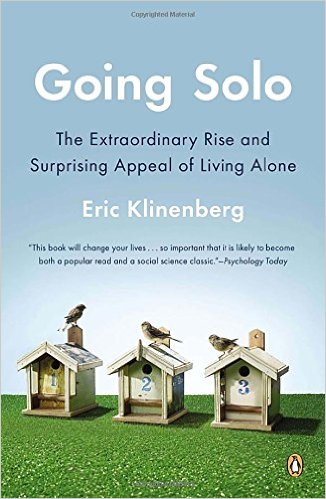More than 32 million adults are living alone. That’s 28 percent of Americans, up from 10 percent in 1950. This remarkable societal shift is having far-reaching consequences, writes Eric Klinenberg, and so far, it’s a mixed bag of success stories and concerns. Some people are deliberately solo, choosing not to commit to domestic partnership for reasons that range from career focus to disinterest in marriage. Others are living alone, wishing they were not. Either way, Klinenberg explains, singles are not independent of community and need others for companionship and support, especially as they age. He discusses the roles of social media, increased longevity and urbanization in this trend, paying particular attention to the effects on women and older adults. This book offers insight into why people choose to live by themselves, what they do to make it work and how we may have to reinvent society to make sure that singles are not actually left alone.



